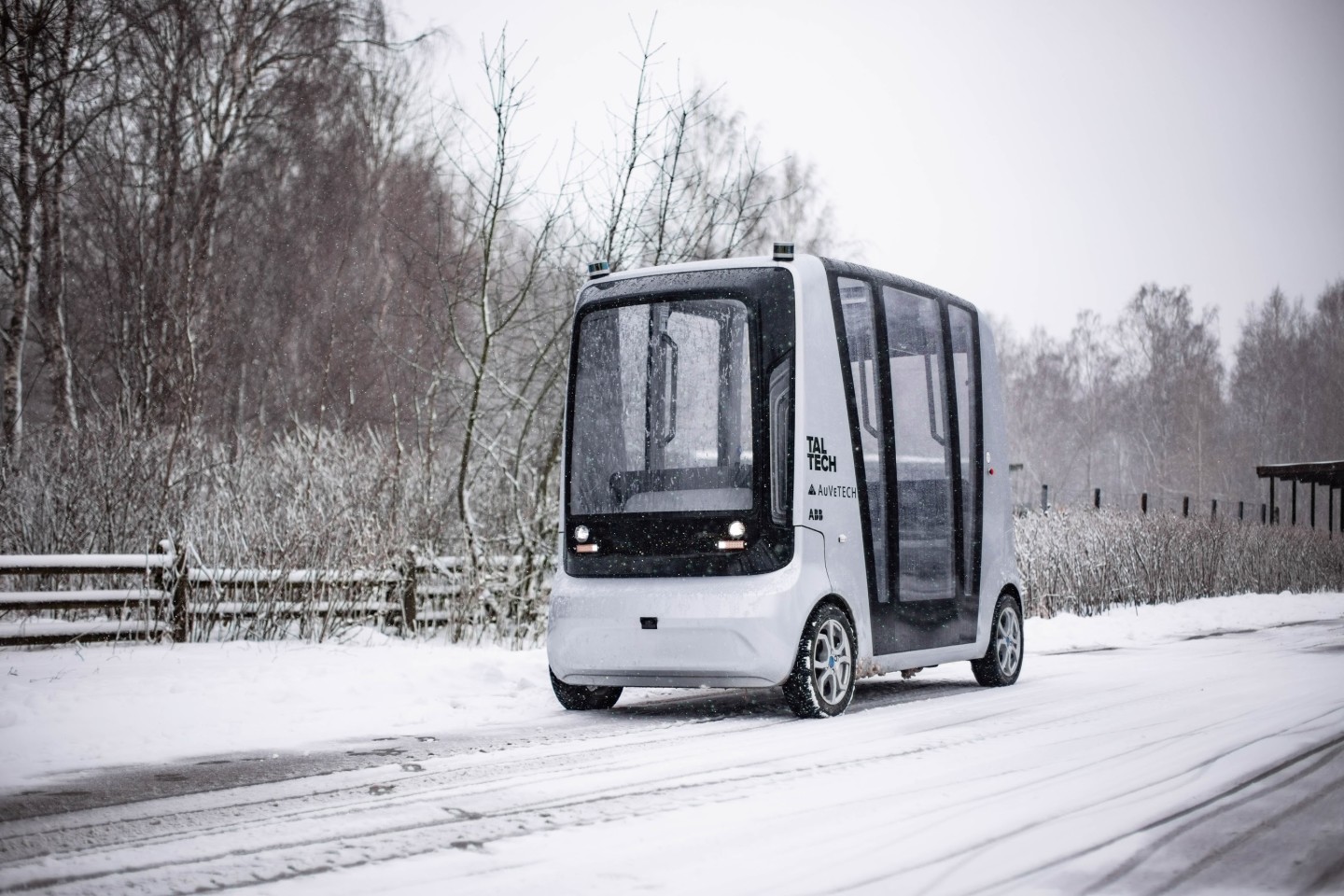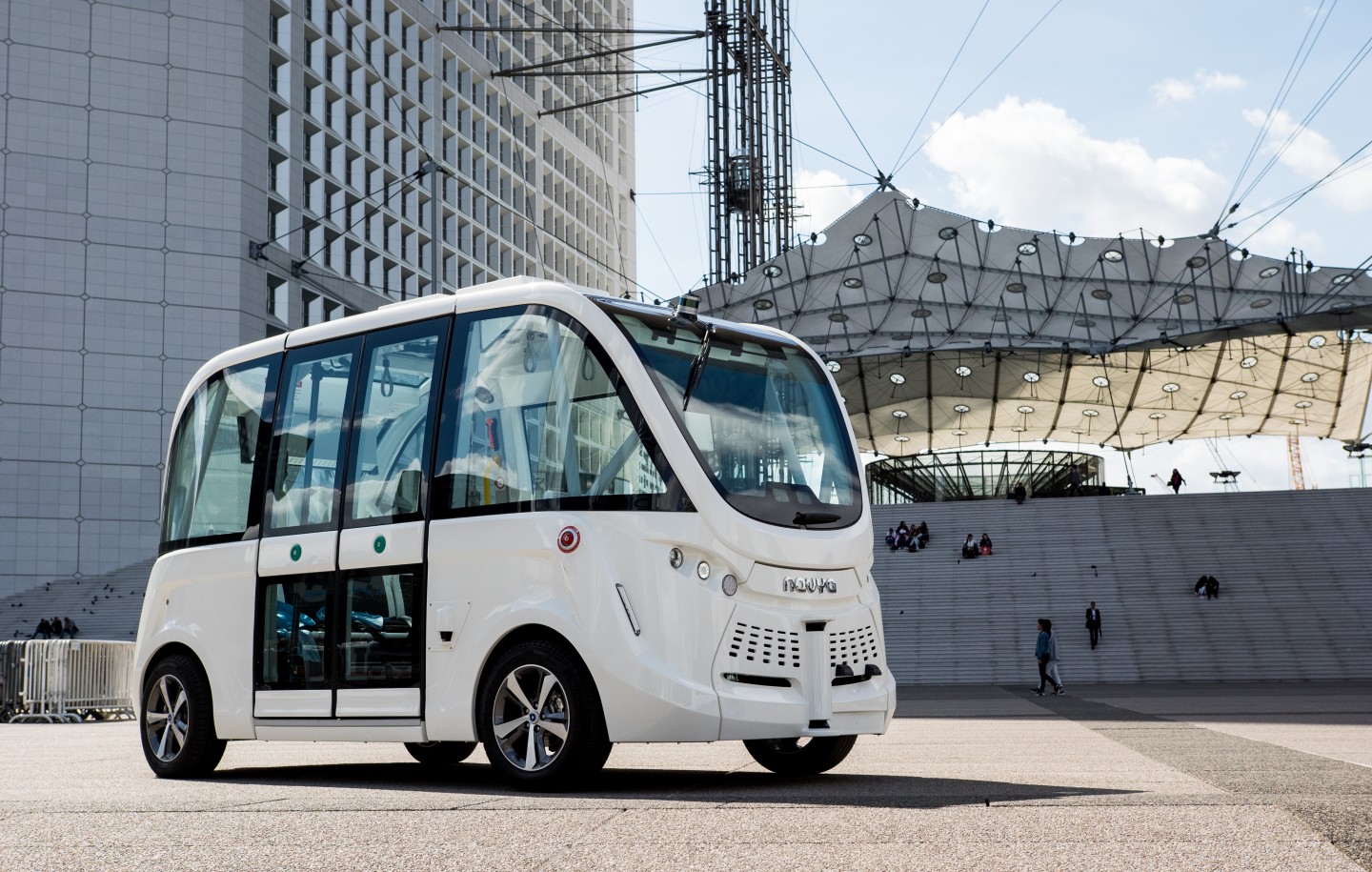After 18 months of planning, the Future Automated Bus Urban Level Operation System (FABULOS) project is about to roll into five European cities to field test autonomous last-mile shuttles in real-world conditions.
FABULOS is an EU-funded research and development project that’s been running since January 2018 with the aim of developing a proof-of-concept autonomous public transport system that can be integrated into existing city infrastructure. It launched a pilot shuttle service pilot in Helsinki, Finland, last month and will now begin similar trials in Gjesdal (Norway) and Tallinn (Estonia) next month, followed by Lamia (Greece) and Helmond (the Netherlands) later in the year.

Auve Tech
“Helsinki aims to be the most functional city in the world,” said Helsinki’s Mayor, Jan Vapaavuori. “Innovation to support the best urban life conditions possible is in the core of our strategy. As such, the promotion of sustainable modes of transport is considered as a high priority. We aim for a pleasant environment, good accessibility and fluent transport as well as the reduction of environmental impacts. In my opinion, the FABULOS project can greatly contribute to achieving this goal by demonstrating the benefits of autonomous public transportation.”
Each 50-day field trial will test the functionality, interoperability and security of self-driving minibus prototypes from Finnish/Spanish company Sensible4-Shotl, a Norwegian/Canadian collaboration called Saga and Mobile Civitatem out of Estonia.
In the Helsinki pilot, for example, the three vehicle fleet trundles along a circular, mostly mixed traffic route that includes a number of crossroads with traffic lights, right turns, a roundabout and on-street parking. Passengers can wait at one of the three bus stops along the way or schedule on-demand rides through a mobile app. There isn’t a human operator aboard, the fleet is monitored remotely from a new control center and a controller can take over driving operations if needed.

Inauguration
At the end of the trial, procurement partners from FABULOS will begin an evaluation process looking at such things as the fleet management system, the control room setup and remote operation, traffic situation capabilities and incident management, and more. There won’t necessary be just one vehicle chosen for potential commercialization though, it’s expected that all of the prototypes will move toward commercial availability.
It is hoped that a successful outcome will result in public follow-up procurement in 2021. The video below has more.
FABULOS – Bringing robot buses to the streets of Europe
Source: FABULOS
Source of Article